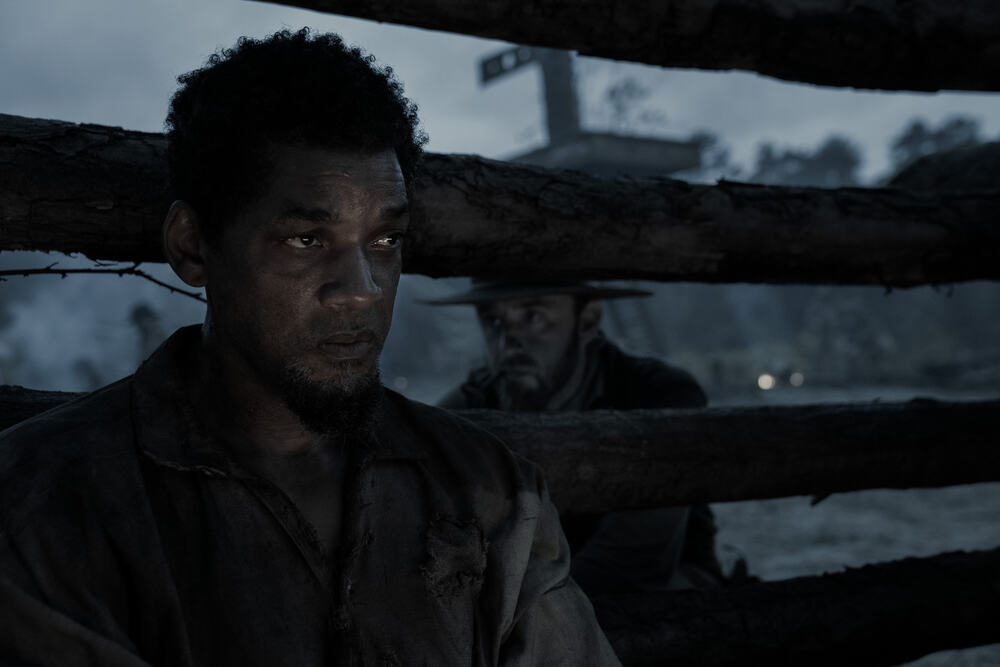Emancipation

Will Smith and Ben Foster star in EMANCIPATION. (Photo: Apple TV+)
Its occasional strokes of brilliance only highlight the underlying self-importance of Emancipation, a heavy-handed historical drama that is powerful and inspiring only in spurts.
This stylish and immersive story of courage and resilience from director Antoine Fuqua (Training Day), inspired by a horrifying 1863 photo of the former slave known as “Whipped Peter,” offers a sobering reminder that the struggle for freedom endured well after Lincoln’s famous proclamation.
It’s easy to root for a slave escaping captivity to find a better life for his family. But in this instance, that story of survival is oversimplified as a cat-and-mouse pursuit set in the Louisiana bayou, where gators and snakes pose a threat alongside ruthless bounty hunters on horseback.
The film opens with Peter (Will Smith) being sold by a plantation owner to help build a railway for the Confederate army, which separates him from his wife (Charmaine Bingwa) and children. He promises them he will return.
In an ultimate act of defiance, Peter leads a small rebellion, fleeing on foot to navigate the perilous swampland with no provisions or resources to find a rumored safe haven. His savvy resourcefulness keeps him a step ahead of Fassel (Ben Foster), the man sent to capture him.
Personal scandals aside, in a fully committed performance following his Oscar win for King Richard, Smith transforms himself with a vague accent, an emaciated frame, and crooked teeth — conveying emotion through body language and facial expression as much as through his minimal dialogue.
The film’s gut-wrenching brutality might be set 160 years ago, yet it still resonates in today’s ideologically divided sociopolitical climate, when it’s equally difficult to watch.
Just as potent as the vivid and harrowing depiction of nonchalant violence is the pervasive psychological trauma in such a culture of subservience, and the stinging racist language that casually accompanies it.
Haunting and evocative, the sumptuous visuals capture the beauty and oppression of its setting with a washed-out color palette and sweeping camera movements.
Emancipation goes beyond triggering residual guilt through shocking imagery. However, the screenplay lacks nuance beneath the stereotypical heroes and villains, with shallow periphery characters and minimal sociopolitical context.
Peter’s plight is intended to represent millions of others who suffered under similar circumstances. Despite such heartfelt intentions, though, this attempt to pay tribute relies on narrative tropes that diminish the overall impact.
Rated R, 132 minutes.